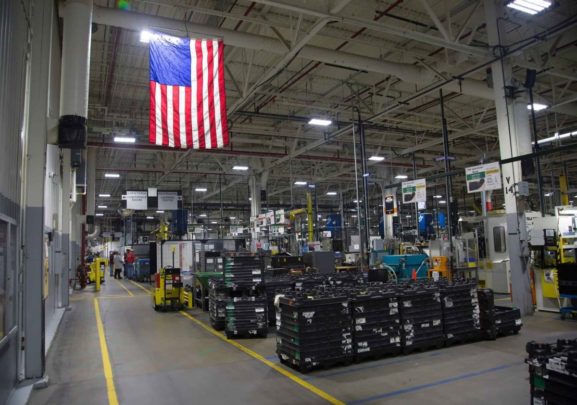NAM Urges Passage of Tax Policies Vital to American Manufacturing

On November 1, 2023, the National Association of Manufacturers, joined by more than 1,300 associations and businesses representing manufacturers of all sizes, called on Congress to act quickly in advancing bicameral legislation that would ensure the tax code once again supports the ability of businesses to create jobs in the U.S. and compete in the global economy. In a letter sent to Congress, the coalition writes:
“We, the undersigned businesses and trade associations, collectively employ millions of Americans in all sectors of the U.S. economy. As tax policy plays a critical role in the ability of businesses to thrive, create jobs in the U.S. and effectively compete in today’s global economy, we write to urge Congress to take immediate action to seamlessly extend three tax policies vital to workers and America’s future: immediate R&D expensing, a pro-growth interest deductibility standard and full expensing.
“Although legislation has been introduced in both chambers in support of these policies, Congress must act immediately to extend these competitive tax policies. Failing to do so will put hundreds of thousands of family-supporting jobs, cutting-edge innovation and pro-growth investments in America at risk.”
The groups writes that Congress can secure the U.S. as a global leader in innovation, incentivize job-creating investments and reinforce America’s competitiveness on the world stage by:
Ensuring the tax code supports innovation: The private sector accounts for more than 75% of total research and development spending, with small businesses alone accounting for approximately $90 billion of all private-sector R&D investments. With wages and salaries comprising approximately 75% of R&D spending, the R&D amortization requirement is first and foremost a jobs issue, with R&D jobs paying an average wage of more than $155,000. Moreover, for every $1 billion in R&D spending, 17,000 jobs are supported.
Enabling businesses to finance growth: Prior to Jan. 1, 2022, businesses’ interest expense deductions were limited by section 163(j) to 30% of their earnings before interest, tax, depreciation and amortization. Interest deductions are now limited to 30% of earnings before interest and tax. By excluding depreciation and amortization, the stricter EBIT standard acts as a tax on investment, making it more expensive for capital-intensive companies throughout the supply chain to finance job-creating growth.
Making permanent a key incentive for capital equipment purchases: A 100% deduction for the purchase of equipment and machinery in the tax year purchased was in place from 2017 through 2022. Congress enacted full expensing to spur investments and ensure that the U.S. is well-positioned to attract capital in a competitive global marketplace. However, full expensing began to phase out at the beginning of 2023 and will be eliminated completely by 2027.
Learn more about the National Association of Manufacturers at www.nam.org.


